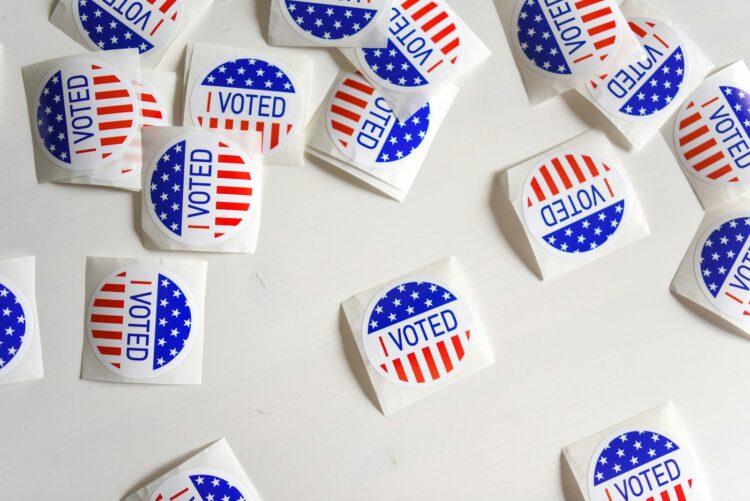
Most people carry private doubts they’ll never admit in public. At work, in family gatherings, or around friends, it’s often easier to nod along than to speak honestly. Social pressure pushes people to perform certainty, even when they feel unsure inside. The result is a world where many pretend to agree with ideas that don’t quite ring true. Here are some of the most common beliefs people keep up in public but question privately.
Marriage Always Brings Happiness

Cultural stories make marriage sound like the happy ending of every life, but real experiences say otherwise. Plenty of people wear smiles in public while wondering if they made the right choice. They won’t admit it at a wedding toast, but behind closed doors, many recognize that marriage doesn’t guarantee joy. Love can be beautiful, but marriage itself is not a promise of lifelong happiness.
Hard Work Always Pays Off

People repeat this phrase with confidence at graduations and in office speeches, yet most know it isn’t always true. Effort matters, but life doesn’t always reward it fairly. Connections, luck, and privilege play a bigger role than people admit aloud. Doubts creep in when someone works tirelessly with little recognition while others succeed quickly. Still, saying this out loud risks sounding bitter, so people smile and keep quiet.
Money Guarantees Security

In public, money is presented as the key to stability, the one thing everyone should chase. Privately, many know it doesn’t erase all fears. Wealthy people still face illness, heartbreak, and insecurity. Money eases some struggles, but it doesn’t protect against everything life throws. Admitting that challenges the dream of financial safety, so most nod along, pretending they believe money is the full solution when they quietly doubt it.
Everyone Loves Their Job

At networking events or casual small talk, people often gush about work, as if fulfillment is the default. In reality, many go home drained and restless, wondering if their career matches who they are. Complaining about work openly risks judgment or lost opportunities, so they put on a smile and act invested. Doubts about whether a job has meaning often stay hidden, buried beneath professional enthusiasm.
Politics Will Fix Everything

In rallies and conversations, people speak as though leaders or policies will bring sweeping change. Yet privately, many admit skepticism. They’ve seen promises break, reforms stall, and corruption creep in. Still, saying that in public feels risky — as though doubt means giving up. People clap, chant, or post online as though they fully believe, while inside they wonder if politics alone can ever deliver what’s promised.
Parenthood Is Always Fulfilling

We’re taught to see parenting as the ultimate purpose, the role that makes life complete. In public, parents often repeat that message, but behind closed doors, some whisper about the exhaustion. Admitting regret feels dangerous, so they keep smiling and call it “worth it.” For those without kids, even raising the question invites judgment. Doubt lingers, but few feel safe enough to speak it out loud.
Workplaces Are Families

Companies love the phrase ‘we’re like a family’ and employees often repeat it with forced smiles. Deep down, most know it’s not true. Families don’t cut you loose when profits fall or treat loyalty as conditional. People pretend to believe in the “family culture” at work because it’s safer than calling it what it is: a job. Privately, the illusion is hard to take seriously.
School Prepares Everyone for Life

Graduations echo with speeches about school teaching everything needed for adulthood. In reality, many graduates leave without practical tools for managing money, building relationships, or handling stress. They doubt whether education prepares everyone equally, but saying so in public feels disrespectful. Teachers and institutions encourage the script, so people nod along, while privately admitting that much of real life gets figured out long after school ends.
Technology Always Improves Life

Public excitement about every new device or app is treated as an obvious truth. Yet privately, many admit technology feels overwhelming. Constant notifications, shorter attention spans, and digital dependence often make life harder. People wonder if progress has actually made them happier, but voicing that sounds outdated. So they cheer the upgrades, buy the new gadgets, and hide the skepticism, even when they long for slower, less connected days.
Religion Explains Everything

Within religious communities, people often repeat beliefs with certainty. Privately, many carry doubts they dare not speak. They wrestle with unanswered prayers or contradictions in teachings, but silence feels safer than honesty. Out loud, they go along with the rituals, even when faith feels fragile. The appearance of certainty matters more than the truth inside, so questions stay locked away, hidden beneath practiced words and polite agreement.
Optimism Fixes All Problems

The culture of positivity insists that keeping a smile and a good attitude solves everything. People publicly praise this mindset, but in private, they know optimism doesn’t erase grief, illness, or systemic issues. Saying otherwise risks being labeled negative, so most pretend to agree. Their doubts surface late at night or in close circles, when they admit life is sometimes too heavy for positive thinking alone.
Everyone Has Equal Opportunity

In classrooms or political speeches, people repeat the belief that everyone starts with the same chances. Privately, many recognize the truth: race, wealth, gender, and geography shape outcomes. But saying it openly can spark conflict or accusations of bitterness. So people quietly doubt while clapping along to speeches. They know equal opportunity is an ideal worth chasing, not a reality that everyone already shares.
Romantic Love Lasts Forever

Fairy tales and wedding vows teach that love naturally lasts a lifetime. Publicly, people act like that’s true, but privately, they’ve seen marriages fade and relationships end. They know love takes effort, and even then, it doesn’t always survive. Questioning that myth in public feels cynical, so they stay silent at weddings, applauding the idea while quietly wondering if forever love is as common as people pretend.
Success Guarantees Happiness

In public, people link success with joy, as if achievements naturally bring peace. Privately, many know that promotions, awards, or wealth don’t always fill the emptiness. They’ve seen successful people burn out or grow lonely. Admitting this risks sounding ungrateful, so they play along, pretending the story is true. Inside, they know happiness is more complicated than hitting milestones, even if no one dares say it.
Beauty Reflects Worth

Publicly, society still acts as if good looks equal value. Compliments, attention, and opportunities flow toward those who fit cultural standards. Privately, many doubt this equation, knowing that kindness, talent, or creativity mean more. Still, they participate in the game — posting flattering photos, praising their appearance, and hiding their discomfort. They know beauty fades and doesn’t equal worth, but saying so out loud feels almost rebellious.

